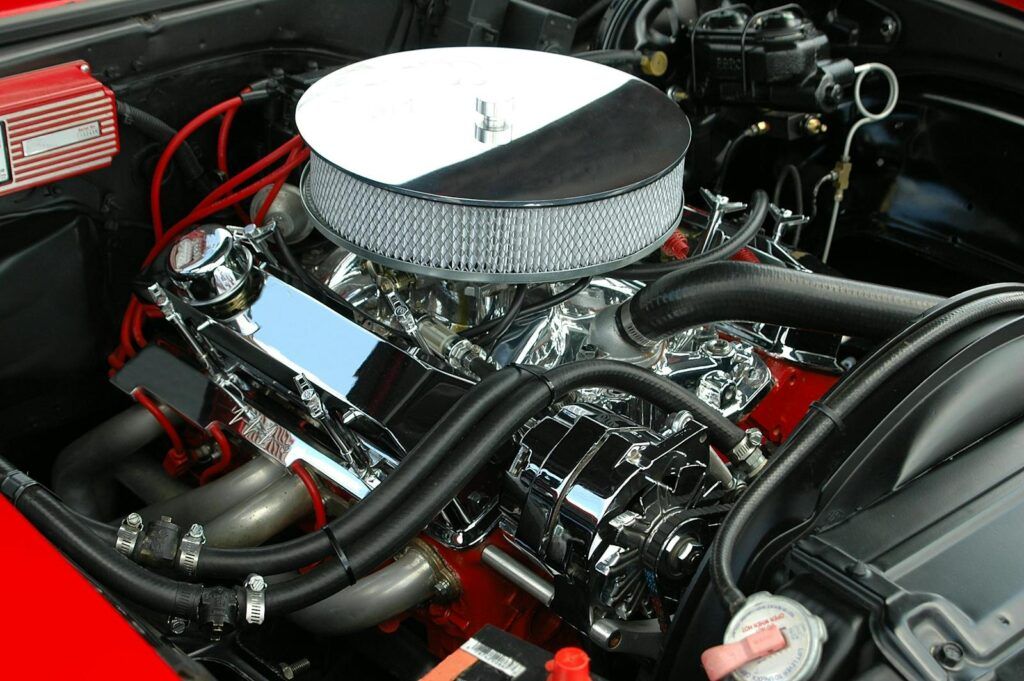
There’s a moment every car owner dreads: that unsettling new noise, a dashboard light flashing an ominous warning, or a strange smell emanating from under the hood. You’re driving along when you notice that something isn’t quite right with your car, and suddenly, the comfort of your daily commute transforms into a cascade of worries. Visiting car mechanics can often feel overwhelming, especially if you’re not familiar with the inner workings of your vehicle or what to expect when handing over your keys. But it doesn’t have to be a source of panic or frustration.
The first conversation you have with a car mechanic can significantly influence the success of your entire service experience, potentially saving you from unnecessary expenses or, worse, improper fixes. Approving repairs without asking the right questions is like navigating a complex maze blindfolded; you might get through it, but at what cost and with what level of confidence? To make sure you’re on the same page and to protect your investment, it’s crucial to approach your auto repair journey armed with knowledge and a clear line of communication.
This comprehensive guide is designed to empower you, the car owner, by providing a set of essential questions to ask your auto mechanic before any work begins. Understanding what to ask will ensure transparency, build trust, and ultimately help you make informed decisions regarding your vehicle’s maintenance and repairs. By asking the right questions, you gain vital insights into your vehicle’s condition, feel more confident in the service you’re getting, and potentially save hundreds—if not thousands—of dollars. Let’s dive into the critical inquiries that will transform your next mechanic visit.

1. **Have you worked on my make and model of car before?**
When your car is acting up, one of the most reassuring things you can hear from a mechanic is that they are intimately familiar with your specific vehicle. It might seem like a straightforward question, but its implications for the quality and efficiency of your repair are significant. Some vehicle repair shops, in fact, specialize in specific types of cars, dedicating their expertise to a particular brand or model range. This specialization often translates into a deeper understanding of common issues, specific diagnostic tools, and efficient repair techniques unique to those vehicles.
Beyond general automotive knowledge, many reputable shops invest in having their auto technicians certified to work on certain makes and models. These certifications are not merely pieces of paper; they represent rigorous training and testing that equip mechanics with specialized knowledge. Think of it like a doctor specializing in cardiology versus general practice – both are skilled, but one has a focused expertise that might be more suitable for a specific heart condition. A mechanic certified for your car’s make and model will be up-to-date on its specific intricacies, including its complex computer systems and proprietary components.
Taking your car to one of these shops will ensure your car is repaired by someone who is not just familiar with your car but is an expert regarding that model. This expertise can lead to more accurate diagnoses, faster repair times, and a reduced likelihood of needing follow-up work due to incorrect fixes. Ultimately, this foundational question helps you gauge the mechanic’s relevant experience, ensuring your vehicle is in the hands of someone truly qualified to address its unique needs. It lays the groundwork for a more successful and less stressful repair experience.

2. **What automotive associations does this shop belong to?**
Asking about a repair shop’s affiliations might not be the first thing that comes to mind, but it’s a powerful indicator of their commitment to industry standards and ethical practices. Membership in recognized automotive associations often means a shop voluntarily adheres to a higher set of guidelines than merely what is legally required. These associations typically have codes of ethics, quality control measures, and continuous education requirements that benefit both the shop and its customers.
The largest organization for auto repair businesses is the Automotive Service Association® (ASA). This prominent body requires that its members adhere to industry regulations and the association’s code of ethics, which covers everything from transparent pricing to fair business practices. When a shop proudly displays its ASA membership, it’s signaling its dedication to upholding professional standards and ensuring customer satisfaction through credible service.
Another highly respected organization that rigorously reviews repair shops is AAA. AAA puts repair shops through a comprehensive review process to ensure they meet industry and customer service standards before they will recommend them to AAA members. This stamp of approval is hard-earned and reflects a commitment to quality parts, skilled technicians, and excellent customer service. Knowing a shop is part of such an organization provides a layer of trust, suggesting they prioritize reliable service and ethical operations, which can offer significant peace of mind when entrusting them with your vehicle.
Read more about: Buyer’s Remorse in Ink: 12 Tattoo Trends That Just Didn’t Age Well, And What To Consider Before Your Next Piece
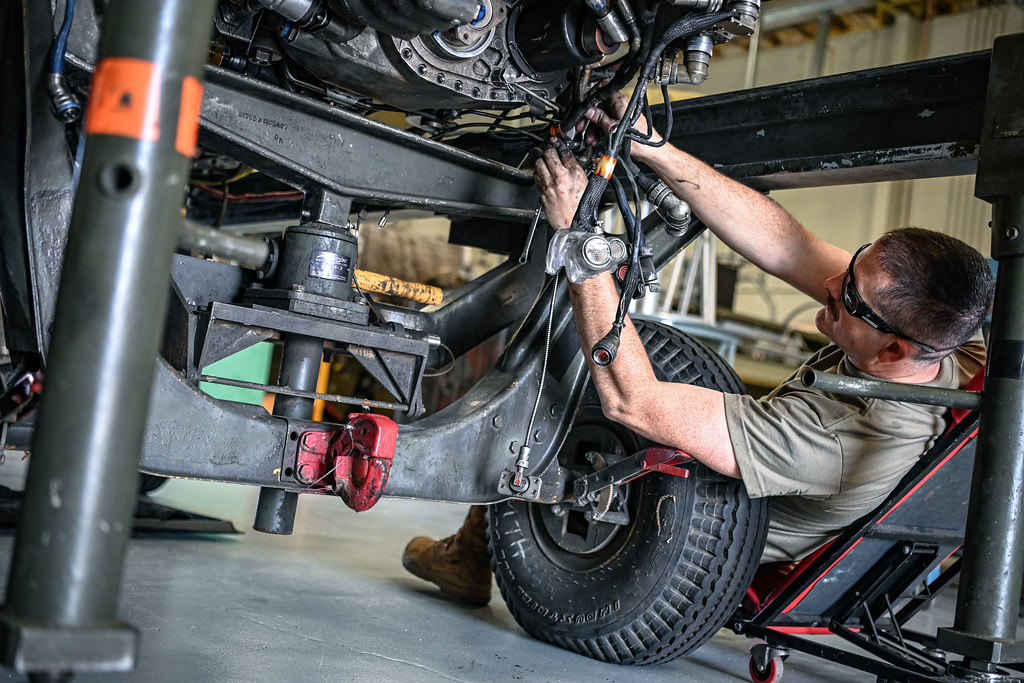
3. **Can you provide references or show me customer reviews?**
In today’s interconnected world, reputation is everything, and that holds particularly true for auto repair shops. Before committing to a repair, it’s entirely reasonable and highly advisable to inquire about a mechanic’s track record with previous customers. While you can directly ask for references, it’s also prudent to take proactive steps and do a little digging online, as the digital landscape offers a wealth of unfiltered opinions.
Platforms like the Better Business Bureau® (BBB) are excellent starting points, where you can check for accreditation, customer complaints, and how those complaints were resolved. Beyond the BBB, review sites like Yelp and Google Local are invaluable resources. Here, customers openly share their experiences, detailing everything from the clarity of communication to the fairness of pricing and the quality of repairs. These insights can paint a comprehensive picture of what you can expect from a particular shop, highlighting consistent strengths or recurring issues.
Another great site specifically tailored for automotive feedback is Car Talk® Mechanics Files, where customers have posted reviews of more than 75,000 mechanics around the United States. These platforms are goldmines for seeing what actual customers are saying about the service and experience. It’s also a good idea to keep an eye out for other customers at the shop when you are there and observe how they are being treated. Do they seem satisfied? Is the staff attentive and communicative? Trusting your instincts, alongside concrete reviews, can help you gauge the quality of service provided and make a more informed decision.
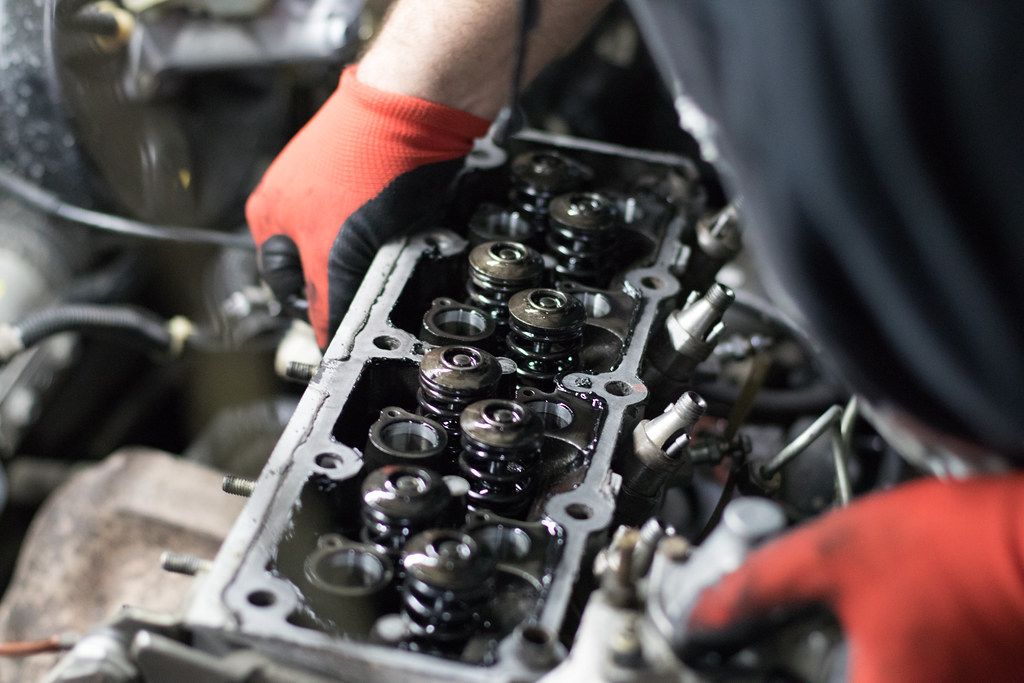
4. **Will my diagnostic estimate be free, and how is the cost determined?**
Before any repair work can begin, a mechanic needs to diagnose the problem. This diagnostic exam is the crucial first step to figuring out exactly what’s wrong with your car. However, the cost of this initial assessment can vary significantly from shop to shop, and some might charge a fee while others offer it for free, especially if you proceed with their recommended repairs. It’s an essential question to ask upfront to avoid any unexpected charges.
You’ll want to check to see whether the diagnostic exam of your car to find out what is wrong — along with an estimate of the cost to fix it — is free. Understanding this policy beforehand helps you budget and compare different service providers. If a car repair shop does charge for diagnostics, it’s equally important to ask them how this cost is determined. Is it an hourly rate for the mechanic’s time spent troubleshooting? Or is it a flat fee for specific diagnostic procedures, regardless of how long it takes? Clarifying these details will give you a clear expectation of what you can expect to be charged for the initial assessment.
Another way to make sure you’re prepared before taking your car in for repairs is to do a little online research about average repair costs. One highly useful website, RepairPal.com, allows you to enter in the make, model, and year of your car, along with the repair needed and your ZIP code. It then shows you a price range for that repair in your city, even breaking down the cost by parts and labor. Using a car repair estimator tool like this provides you with a valuable reference point when talking repair costs with your car mechanic, allowing you to gauge the fairness of the diagnostic and repair estimates you receive.
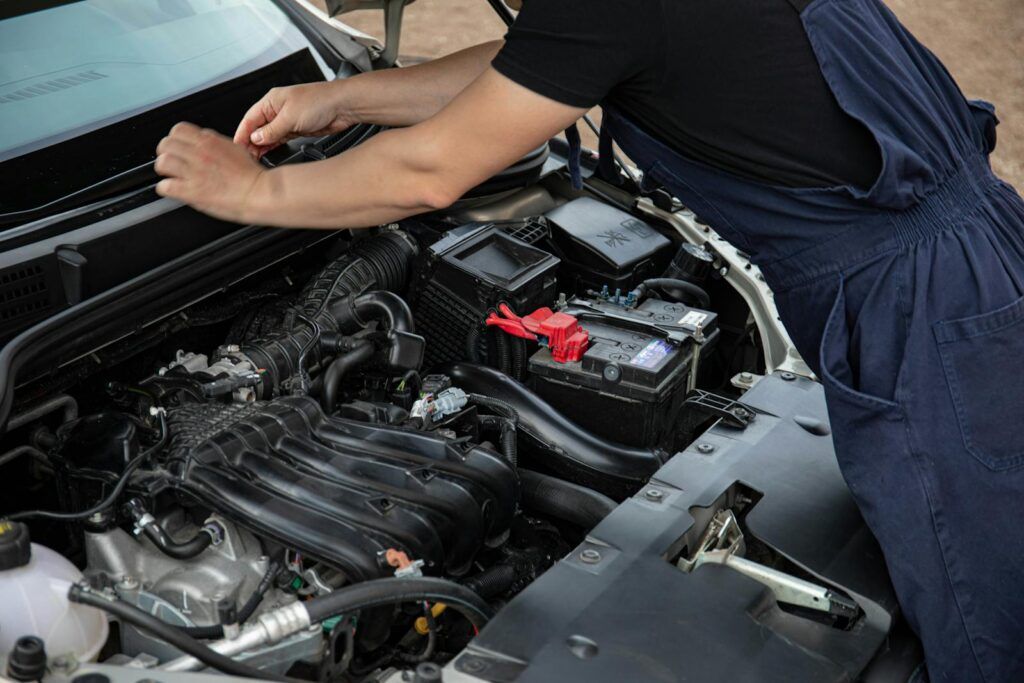
5. **Will you provide a detailed written estimate before any work begins?**
Perhaps one of the most critical questions you can ask, and a cornerstone of a transparent repair experience, is whether the mechanic will provide a detailed written estimate before any work commences. This isn’t just about getting a ballpark figure; it’s about receiving a comprehensive document that outlines the scope of work, expected costs, and a clear understanding of what you’re authorizing.
You will want to make sure to get a detailed estimate in writing and signed by the mechanic before proceeding with any vehicle repair. This document should be meticulously crafted, clearly itemizing what needs to be repaired, what specific parts are needed to perform the repair, and all the associated labor charges. A reliable mechanic should have no issue providing a comprehensive breakdown of costs without hesitation, and this level of cost transparency is key to building trust.
Not only will this written estimate provide you with a clear idea of how much you will be paying, allowing you to budget accordingly and avoid any financial surprises, but it also serves as a crucial safeguard. If you run into any problems down the road with the final cost significantly deviating from the quote, or if the repairs done do not meet expectations, having something in writing makes any legal action much easier to pursue. Always request a written estimate before work begins, and ask if the quote includes parts, labor, diagnostic fees, and taxes, ensuring there are no surprise charges at checkout.
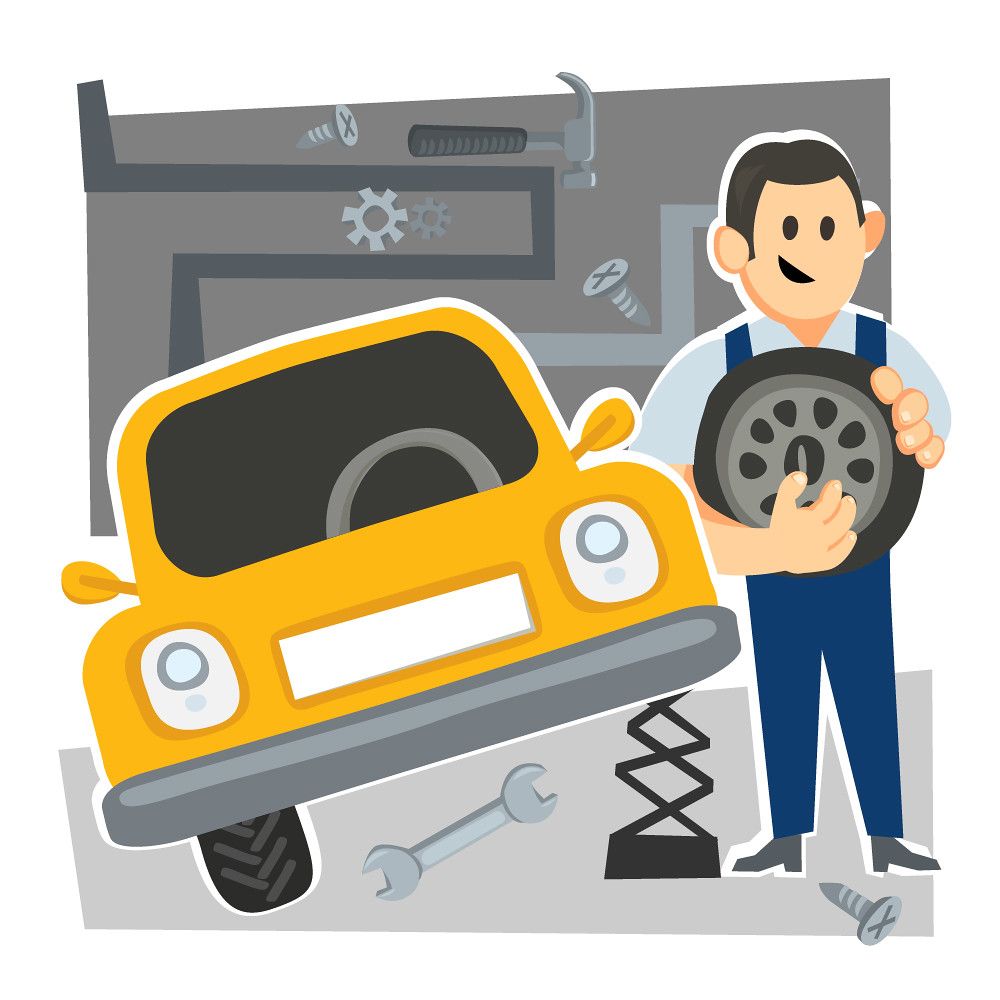
6. **Can you explain the problem and the necessary repairs in simple terms?**
When faced with an automotive issue, it’s easy to feel lost in a sea of technical jargon. Mechanics often speak a language of their own, filled with terms like “catalytic converter,” “strut assembly,” or “EGR valve.” This might seem like a silly question to ask, but you want to make sure the auto mechanic will be able to tell you in plain, easy-to-understand terms what needs to be done and why. The ability to translate complex mechanical problems into everyday language is a hallmark of a truly customer-focused professional.
Not everyone speaks “car.” A trustworthy auto mechanic should be able to break down the issue in plain language—without jargon—helping you understand the severity of the problem and whether it needs immediate attention. This clarity is paramount. When a mechanic takes the time to explain the root cause of your car’s issue in simple terms, it not only educates you about your vehicle’s condition but also allows you to gauge their ability to communicate effectively and patiently. A good mechanic will appreciate your curiosity and want you to feel confident in their work, welcoming follow-up questions.
When you comprehend the reasons behind the repairs, you will be able to ask more informed follow-up questions and have a better grasp on the entire process. This approach helps build trust and clarity in the service relationship, transforming a potentially intimidating experience into an empowering one. You’ll gain a deeper understanding of your vehicle’s health and feel more confident in the decisions you’re making, rather than simply accepting a repair on faith.
Read more about: 12 Essential Questions to Ask Your Mechanic Before Approving Any Car Repair
7. **Is this repair necessary right now, or can it wait?**
Not all car repairs are created equal, and understanding the urgency of a recommended fix is crucial for prioritizing your vehicle’s needs and managing your budget effectively. Sometimes, a mechanic might identify multiple issues, and knowing which ones are critical for immediate safety or vehicle longevity versus those that can be safely deferred can make a significant difference in your decision-making process.
Some issues, such as a worn timing belt or compromised brake lines, can lead to catastrophic failure if ignored, posing serious safety risks or resulting in far more expensive repairs down the line. These are the “fix it now” situations. Others, however, such as cosmetic damage, a minor fluid leak that isn’t rapidly depleting, or slight wear on a non-critical component, might not need immediate attention and can be scheduled at a more convenient time or when your budget allows.
Asking this question helps you prioritize repairs based on safety, urgency, and budget. It empowers you to make a strategic decision, rather than feeling pressured into immediate action for every item on a diagnostic report. A great auto mechanic will be honest about what can happen if the issue is ignored, clearly explaining the consequences of postponing a repair, and allowing you to plan your maintenance proactively rather than reacting to emergencies. This helps you to prioritize and manage costs better, giving you control over your vehicle’s maintenance schedule.
Now that you’ve navigated the initial consultation and established a good rapport, the journey towards an informed repair decision continues. Empowering yourself means delving deeper into the repair process itself, understanding the ramifications of your choices, and ensuring all aspects, from parts to warranties, are clearly communicated. This next set of questions will put you firmly in the driver’s seat of your vehicle’s maintenance, transforming you from a passive recipient of service into an active, confident decision-maker.
Read more about: 12 Essential Questions to Ask Your Mechanic Before Approving Any Car Repair
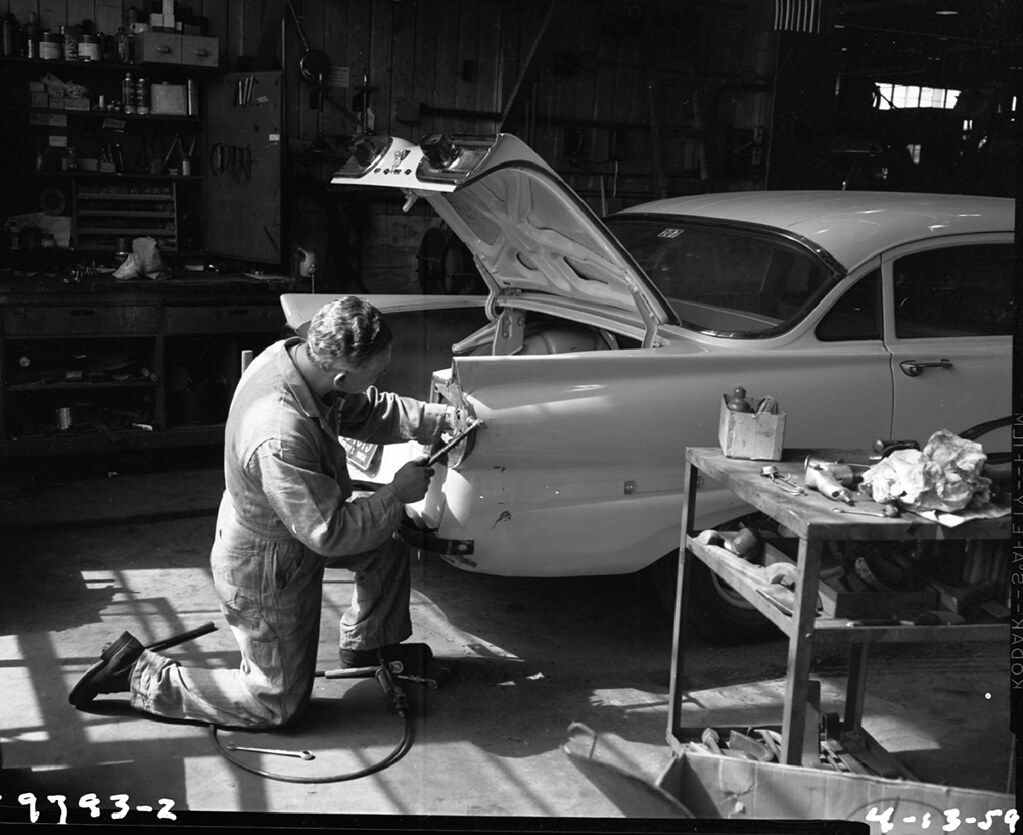
8. **What happens if I don’t fix it?**
After discussing the urgency of a repair, it’s only natural to wonder about the repercussions of inaction. Understanding the consequences of postponing a recommended repair is absolutely critical, as not all fixes demand immediate attention. Some issues can indeed be safely delayed without significant risk, allowing you to plan your budget and schedule more effectively. However, overlooking certain problems can quickly escalate a minor inconvenience into a major disaster, impacting both your wallet and your safety on the road.
A truly great auto mechanic will be forthright and transparent about the potential outcomes of ignoring a specific issue. They should clearly explain what can happen if the problem is left unaddressed, detailing the cascading effects it might have on other components of your vehicle. For instance, a worn timing belt, if ignored, can lead to catastrophic engine failure, resulting in an exponentially more expensive repair or even rendering your vehicle irreparable. Similarly, compromised brake lines are an immediate safety hazard that absolutely cannot be put off.
Conversely, a cosmetic scratch or a minor fluid leak that isn’t rapidly depleting might not necessitate urgent action, allowing you to schedule its repair at a more convenient time. This question empowers you to weigh the risks against your resources, making a strategic decision rather than feeling pressured into an immediate, blanket approval for every item on a diagnostic report. By understanding the full spectrum of consequences, you gain invaluable perspective, enabling you to prioritize repairs based on safety, vehicle longevity, and financial prudence.
Read more about: Beyond the Showroom Shine: 15 Car Brands and Models Driving Experts Would Never Buy – And Why You Shouldn’t Either

9. **Will I be able to choose what car parts are used for the repair?**
When it comes to replacing components in your vehicle, not all parts are created equal, and understanding your options can significantly impact both the cost and the long-term performance of your repair. This often overlooked question is vital for ensuring you get the best value and the most suitable solution for your car’s needs, rather than simply accepting whatever parts the shop typically uses. The mechanic might suggest various kinds of parts, each with distinct advantages and considerations.
Typically, mechanics might recommend using parts made by the original manufacturer, known as OEM (Original Equipment Manufacturer) parts. These are essentially duplicates of the part they are replacing, ensuring a perfect fit and consistent performance, often backed by a manufacturer’s warranty. However, for certain types of car repairs, a mechanic might suggest using a used car part. If they can assure you the part is in excellent working condition, this can be an excellent way to save money and contribute to recycling. Just be sure that if you opt for a used part, the shop doesn’t charge you the same price as a brand-new one.
Beyond OEM and used parts, there are also aftermarket options which can sometimes offer cost savings. The difference in performance, however, can be substantial between these various types. It’s a great thing to know before going to a shop for a repair whether you can get a replacement part that costs less, or if the part from the car maker is truly better in the long run. Discussing these choices with your mechanic empowers you to make an informed decision that balances quality, cost, and your vehicle’s specific requirements, ensuring you’re comfortable with the components going into your car.
Read more about: 12 Essential Questions to Ask Your Mechanic Before Approving Any Car Repair
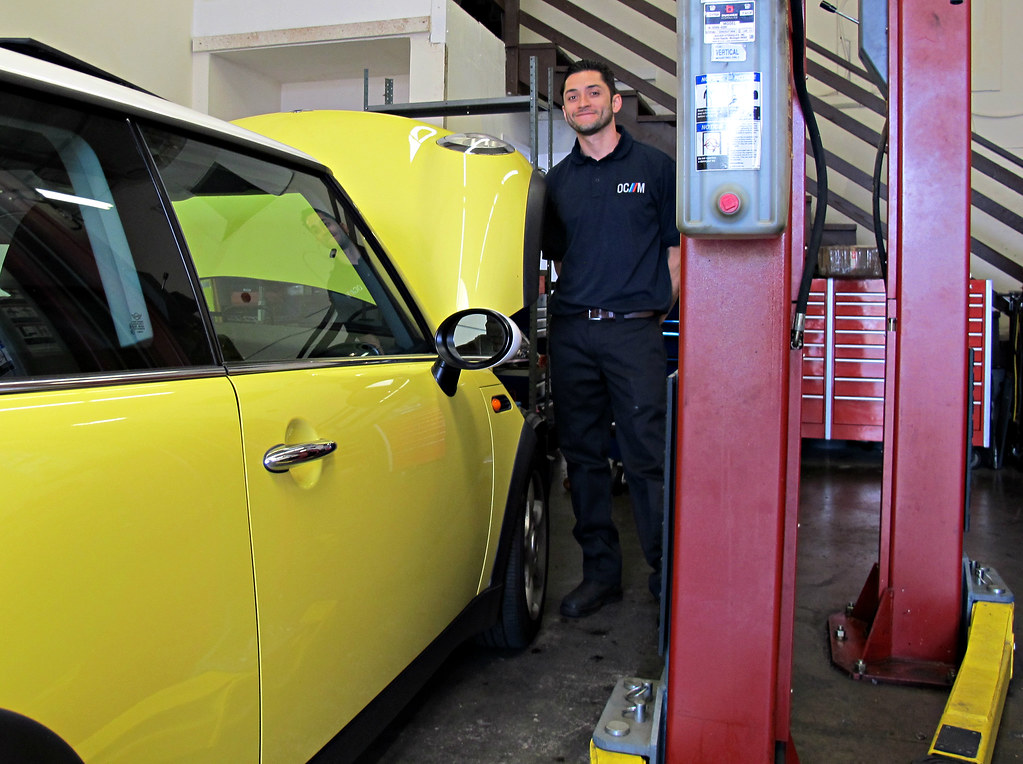
10. **Will you call me with any unexpected expenses or discoveries during repair?**
You’ve received a detailed estimate, authorized the initial work, and now your car is in the shop. But what happens if the mechanic uncovers an entirely new problem or realizes the original fix is more complex than anticipated? Unexpected discoveries during a repair are common, and without clear communication, they can quickly lead to significant cost overruns and frustration. This question is a critical safeguard for your budget and peace of mind.
It’s important to be aware that some states actually require auto repair shops to call customers and get their approval on any repairs or parts that exceed a certain pre-approved amount. This legal protection is designed to prevent shops from racking up charges without your explicit consent. Even if you don’t live in a state where such troubleshooting and approval are legally required, you should always request that the mechanic calls you immediately if anything comes up in addition to what was quoted on your initial written estimate. This should be a non-negotiable part of your service agreement.
Ensuring you get this commitment upfront puts you in control of your spending. It means no surprise charges at checkout, and it allows you to make an informed decision about additional work, considering factors like urgency and cost, before it’s done. This proactive communication demonstrates a shop’s commitment to transparency and ethical practices, aligning perfectly with your goal of avoiding financial surprises and maintaining clear communication throughout the repair process.
Read more about: 12 Essential Questions to Ask Your Mechanic Before Approving Any Car Repair
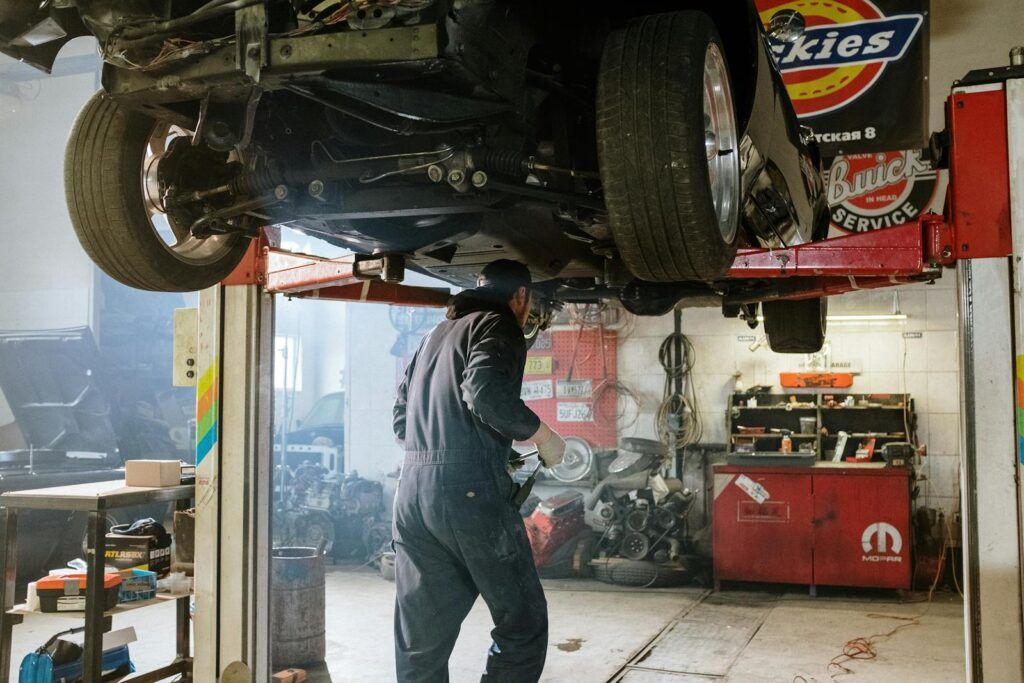
11. **Are the parts and services under warranty?**
Entrusting your vehicle to a mechanic for repairs involves a significant investment, and the last thing you want is for a newly fixed component to fail shortly after leaving the shop. This is why inquiring about warranties on both parts and labor is absolutely paramount. A reputable auto mechanic stands behind their work, and a clear warranty policy is a strong indicator of their confidence in the quality of the repairs and the parts they use. It provides a crucial layer of protection and peace of mind.
Warranties can vary significantly from one repair shop to another, so it’s essential to verify what is covered and for how long. As a valuable benchmark, keep in mind that organizations like AAA require their “approved auto repair facilities” to guarantee all repairs, parts, and labor for a minimum of 12 months or 12,000 miles. Knowing this standard can help you gauge the generosity and reliability of the warranty offered by your chosen shop. Always make sure to get all warranty details in writing before you approve any work, so there’s no ambiguity if issues arise later.
Furthermore, it’s worth busting a common warranty myth: if you have a newer car that is still under the manufacturer’s warranty, you might incorrectly assume you *must* take your car to the dealer for service to maintain your warranty. This is wrong. It’s actually illegal for warranty coverage to be denied because you took your car to a place other than the dealer for routine maintenance or repairs. While there are specific times when repairs might not be covered, and a dealer *can* limit where you get free warranty repairs, this distinction is important. Check out the Federal Trade Commission’s information on auto warranties for more specifics, but rest assured, quality independent shops can often handle your needs without voiding your primary warranty.
Read more about: 12 Essential Questions to Ask Your Mechanic Before Approving Any Car Repair
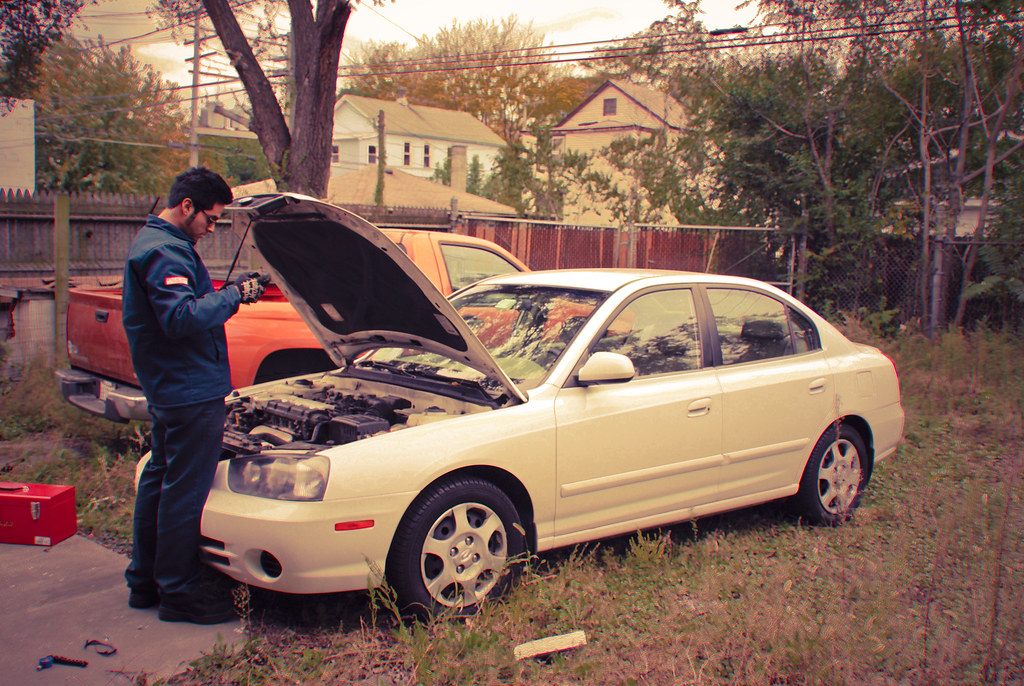
12. **How long will the repairs take?**
Your car is more than just a mode of transport; for many, it’s an essential tool for daily life, whether for commuting to work, running errands, or picking up children. Therefore, understanding how long your vehicle will be out of commission for repairs is a practical and vital question to ask upfront. Unexpected delays can throw your entire schedule into disarray and potentially incur additional costs, such as rental car fees, if you haven’t planned accordingly.
The duration of repairs can vary widely, depending on the complexity of the diagnostic process, the severity of the issue, and the availability of specific parts. Simple fixes might take just a few hours, while more intricate problems requiring specialized parts or extensive labor could keep your car in the shop for several days. A transparent mechanic will be able to give you an estimated repair timeline once the diagnosis is complete, allowing you to plan your transportation needs while your car is being serviced. This helps you avoid unexpected delays and better manage your day-to-day logistics.
Additionally, inquiring about the timeline opens up a conversation about potential contingencies. For example, you might ask if the shop offers a rental car service, a courtesy vehicle, or if they have arrangements with local rental agencies at a discounted rate. Knowing when your car will be ready and having alternative transportation lined up can significantly reduce the stress associated with vehicle downtime. This question ensures that you’re not left stranded and that the repair process integrates smoothly into your life.
Read more about: Drove it Regretted it: 12 Compact Models That Made Owners Question Their Judgment on the First Commute.
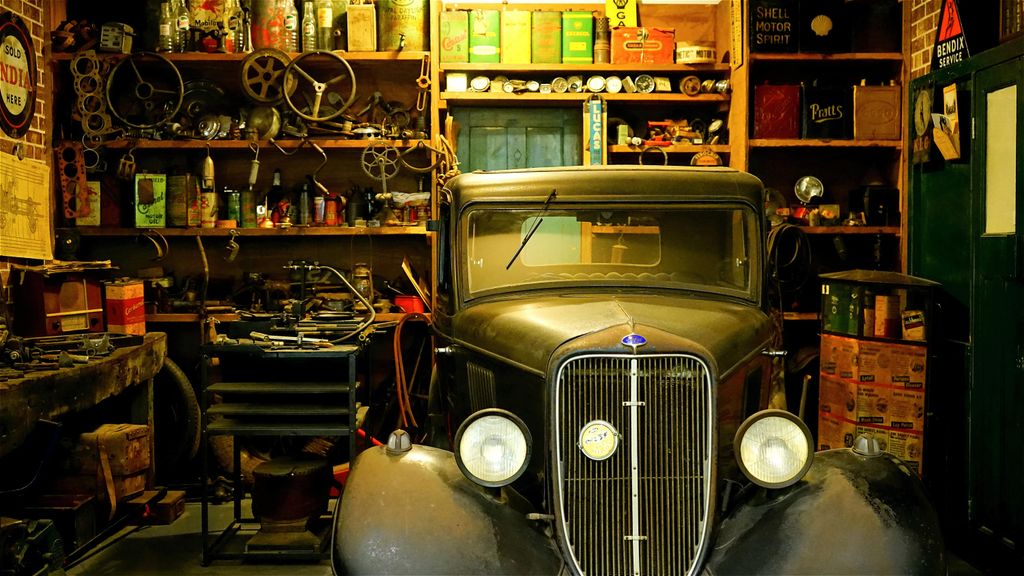
13. **Can you show me the problem?**
When a mechanic explains what’s wrong with your vehicle, especially if you’re not well-versed in automotive mechanics, it can sometimes feel like they’re speaking a foreign language. Technical jargon, while accurate, can be intimidating and leave you feeling unsure about the necessity or nature of the repair. This is precisely why asking a mechanic to visually demonstrate the problem is an incredibly empowering question that fosters transparency and builds trust.
A visual explanation is always helpful, allowing you to connect the abstract description to a tangible issue. If possible, ask your mechanic to show you the damaged or worn part before it’s removed from your vehicle. If you’re not able to be physically present at the shop, a reputable mechanic should be willing to provide photos or videos of the problem areas. Seeing the cracked belt, the worn brake pad, or the leaking hose with your own eyes makes the repair decision far more concrete and understandable.
This practice transforms the repair process from a mysterious transaction into an educational experience. When you can see the problem, you gain undeniable proof of the issue and a clearer understanding of why the repair is necessary. Reputable shops and mechanics are typically transparent and eager to show you exactly what’s going on, as it demonstrates their honesty and helps you feel more confident in their assessment and the work they propose. It’s a simple question that yields significant clarity and empowers you to make truly informed decisions.
Read more about: Behind the Mic: 8 Major Stars Who Steered Clear of Iconic Charity Singles (and Why!)

14. **Will you provide me with a detailed invoice once the repairs are completed?**
The repair work is done, your car is running smoothly again, and you’re ready to pick it up. But your interaction with the mechanic shouldn’t end there. Requesting a detailed invoice for the completed repairs is just as crucial as getting a written estimate beforehand. This document serves as your official record of the service performed and is an indispensable tool for future reference, accountability, and even potential resale of your vehicle.
You will want to know exactly what parts were replaced, what services were performed, and have that information for your records. A comprehensive invoice should meticulously itemize all parts used, including their types (e.g., OEM, aftermarket, used), their costs, and any associated labor charges. It should also clearly state the date of service and any warranty information pertaining to both the parts and the labor. This transparency ensures that you have a complete picture of the work done and the financial outlay.
Not only does a detailed invoice provide proof of the date of service and the warranty in case a part stops working down the road, making any future claims much easier, but it also comes in incredibly handy if you decide to sell the car. Prospective buyers often value comprehensive service records as they indicate a well-maintained vehicle, potentially increasing its resale value. By demanding this final piece of documentation, you ensure continuous transparency and protect your investment for the long term.
Read more about: 12 Essential Questions to Ask Your Mechanic Before Approving Any Car Repair
Visiting an auto mechanic doesn’t have to be a source of stress or intimidation. By arming yourself with these essential questions, you’re not just passively receiving a service; you’re actively engaging in a partnership that ensures your vehicle receives the best possible care. These inquiries foster open communication, build trust, and empower you to make intelligent, confident decisions about your car’s maintenance and repairs. Remember, a knowledgeable car owner is always in the best position to protect their investment and keep their vehicle running safely and efficiently on the road. Asking the right questions is your ultimate wrench in the toolkit of car ownership.

